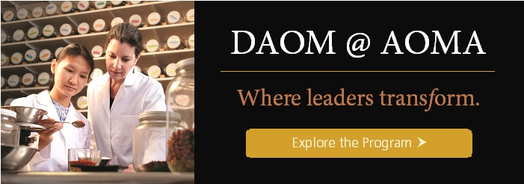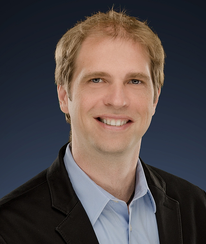By William Morris, DAOM, PhD, LAc, AOMA president
I would like to explore the title of doctor, its historical use and impact upon programs and policy. It is time that people entering the AOM field, putting in four years of effort and often times the better part of $100,000 earn the title of doctor.
So, let's take a closer look at what exactly that title means and whether doctorates fit into the world of AOM.
A Doctor defined
The term Doctor (Dr.) attracts confusion regularly. Learned people consider the doctoral education in U.S. AOM to be PhDs. They are not, at least for now. Then there is the OMD that ended in 1998 as the field sought accreditation for master level education. Now, we have a post-graduates specialty in the DAOM and a looming first professional doctorate: title to be determined.
The first doctorates were PhDs. According to The Oxford English Dictionary, the earliest written use of the English word doctor was in 1303, referring to doctors of the church, meaning "learned men in the scriptures." In 1377, medical doctor as title for those who treat illnesses or diseases gained presence. Somewhere in the late 14th century, a church father enjoyed the title doctor as a religious teacher, adviser and scholar. In Latin, it was docere: to teach, in French, doctour. M.D. doesn't arrive until 1755 in the abbreviation of L. Medicinae Doctor "doctor of medicine."1 In Chinese, language Dr. is designated yshng, this is a professional medical practitioner in the tradition of Chinese medicine.
In contemporary western practice, there are several forms of doctoral designation with respective roles. Research doctorates have the title PhD. There are first professional doctorates that are achieved within the disciplines: educational doctorate (EdD), dentistry (DD), medicine (MD), physical therapy (DPT), chiropractic (DC) and law (JD). The AOM field is unique in that it has a post-graduate Doctorate in Acupuncture and Oriental Medicine (DAOM) with competencies in a clinical specialty plus a smattering of research and education.
The DAOM
Let's review the requirements for the DAOM. All current DAOM programs require graduation from an accredited master degree program. After two years of undergraduate level education and 3.5-4 years of education at the master degree level, the DAOM can be earned with two years and at least 1,200 hours of education. This makes for 7.5-8 years minimum for doctoral level education in the AOM field, consistent with first professional degree education throughout the disciplines.
The DAOM program must provide a curriculum covering the competencies in the following core areas (2):
-
Advanced patient assessment and diagnosis;
-
Advanced clinical intervention and treatment;
-
Consultation and collaboration;
-
Clinical supervision and practice management;
-
Clinical evaluation and research.
DAOMs require teaching skills (4. Clinical supervision). As an educator, this is an interesting area. In one DAOM program, the new cohort was surveyed about their willingness to precept (supervise learners in their clinics). Of some 15 learners, only one was interested in precepting. After the program, all but one was willing to serve as a preceptor. Seemed successful. This is an important area of contribution and it is not a competency that is likely to be pursued in first professional doctorate.
Should the Current Master Degree in Oriental Medicine be a Doctorate?
The average time to complete a PhD is 10 years with four years at the PhD level; two years master level education and four years of undergraduate education. First professional doctorates are different. The state of New York defines a first professional doctorate as two years of undergraduate study with four years of graduate education in the profession. While the PhD is typically 10 years, and it is possible to complete a first professional doctorate in six years, it is more likely that the undergraduate education is more substantial at four years. Thus, the first professional degree involves typically 7-8 years of education after high school.
Maybe we shouldn't! Some school leaders argue against first professional doctorates because of the costs involved and concern that it could put a school out of business.
There are two primary reasons a school may fear failure should doctoral programs arise. First, the state in which the school operates may not allow for doctoral education. Second, many schools do not have the resources for developing doctoral level education. Thus, the uneven competition created by state laws and institutional capacity could cause schools to fail if students were to flock to available first professional doctoral programs. Ah! There is a third. Those schools that have put resources into developing DAOM programs at great expense may be concerned that a first professional doctorate would somehow cause interest to be lost in the DAOM program.
"But, there is increased med-legal risk for the acupuncturist to gain a doctoral title," was a common refrain of AOM doctoral opponents of yore.2 That tune evaporated as the DAOM programs places graduates onto the streets and the insurance rates remained the same for that group as the master degree prepared practitioner. In my opinion, an improved educational standard lowers risk rather than increases it. A study that could highlight this view might be to explore the number of malpractice suits sustained by doctorally vs. masters prepared practitioners.
Who Cares?
I stand for doctorates in the field of AOM because I believe it is the right thing to do. It is a position that I have maintained since the early 80s'.
In Texas, where I live and work, there is no assurance that permission to grant first professional doctorates can be obtained. There is a risk. I continue to support first professional doctorates, because I believe it is right for the field, even if there is risk. As president of a school of AOM, my approach to leadership has been that what is good for the profession will be good for the school. This is the view when first professional doctorates are discussed within the Council of Colleges of Acupuncture and Oriental Medicine.
Power dynamics are leveled there is a common title among participants. Practitioners of Chinese medicine are often outside the mainstream currents in policy development, higher education and in the practice arena. Thus, AOM providers sustaining doctoral titles can serve a common social good, because the ability to influence access to care by the public is enhanced.
It is important for senior learners to teach junior learners, because it is through the act of transmission that senior learner learn! And, as John's Hopkins medical educator said in the early 1900s, "There is no way we can teach them everything they need to know to enter practice. The best we can hope for is to inspire them towards lifelong learning." Today's master degree in AOM is more rigorous than the MD of 1900.
While it is the internal and not the external qualifications that make a practitioner, in the eyes of the other, rank can be a leveling tool. The doctoral title may help those who are dedicated to erecting this profession and what it has to offer both society and the patient. The doctoral title often enhances relations with community partners, patients and policy makers. For these reason, which are tied to creating just and equitable access to healthcare that is often times safer and more cost effective than post industrial medicine, it is important for the acupuncturist to gain doctoral recognition.
Comments on the first professional doctorate would be speculative since the standards are still subject to process including public hearings and input. The AAAOM operates a forum where voices can be heard. Go here: http://groups.google.com/group/aomcommunity?pli=1 to participate in dialogs about the development of a first professional degree. The dialog is open and uncensored.

References:
-
Etymonline. Doctor 2011: Available from: www.etymonline.com/index.php?term=doctor.
-
ACAOM Accreditation Manual: Structure, Scope, Process, Eligibility Requirements and Standards. Greenbelt, Maryland: Accreditation Commission for Acupuncture & Oriental Medicine; 2009.
-
ACGME. ACGE Outcome Project. Minimum Program Requirements Language [serial on the Internet]. 1999: Available from: www.acgme.org.
This article was originally published in Acupuncture Today January, 2012, Vol. 13, Issue 01.
.jpg?width=279&height=186&name=classroom_(2).jpg) The doctoral program in acupuncture and Oriental medicine at AOMA begins in July, 2013. The two-year program is has a modular format, coupling week-long, intensive, on-campus learning experiences with extended periods of home study, allowing working professionals to continue their practice while enrolled. Here are the specific dates for the academic calendar.
The doctoral program in acupuncture and Oriental medicine at AOMA begins in July, 2013. The two-year program is has a modular format, coupling week-long, intensive, on-campus learning experiences with extended periods of home study, allowing working professionals to continue their practice while enrolled. Here are the specific dates for the academic calendar. In January, AOMA hired the director of the doctoral program in acupuncture and oriental medicine, Dr. John S. Finnell. Dr. Finnell is an accomplished researcher and skilled health care practitioner with a rich academic and professional background. Prior to beginning his career in integrative medicine, Dr. Finnell completed a Masters of Science in environmental engineering at the Royal Institute of Technology in Sweden. His interest in lifestyle and environmental determinants of health then lead him to earn a Doctorate of Naturopathic Medicine and a Masters of Science in Acupuncture & Oriental Medicine from Bastyr University, as well as a Masters of Public Health in Epidemiology from the University of Washington. As a practitioner of Naturopathic and Chinese medicines, Dr. Finnell’s clinical focus is on nutrition, pharmacognosy, herb-drug interactions, mind-body medicine and qigong as well as translational medicine, disease prevention, and lifestyle education.
In January, AOMA hired the director of the doctoral program in acupuncture and oriental medicine, Dr. John S. Finnell. Dr. Finnell is an accomplished researcher and skilled health care practitioner with a rich academic and professional background. Prior to beginning his career in integrative medicine, Dr. Finnell completed a Masters of Science in environmental engineering at the Royal Institute of Technology in Sweden. His interest in lifestyle and environmental determinants of health then lead him to earn a Doctorate of Naturopathic Medicine and a Masters of Science in Acupuncture & Oriental Medicine from Bastyr University, as well as a Masters of Public Health in Epidemiology from the University of Washington. As a practitioner of Naturopathic and Chinese medicines, Dr. Finnell’s clinical focus is on nutrition, pharmacognosy, herb-drug interactions, mind-body medicine and qigong as well as translational medicine, disease prevention, and lifestyle education.


